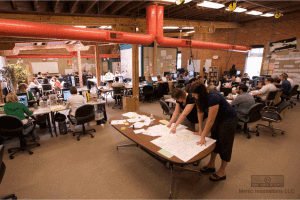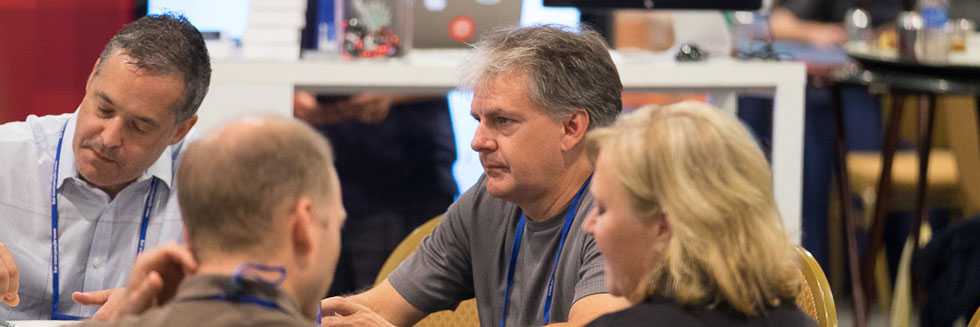Statistics show that in 2014, more than two-thirds (68.5%) of U.S. workers are NOT enthusiastic and committed to their work. If you work 5 days a week, 40 hours a week, most of your time is spent working (not accounting for preparing for work and commuting). Ask your employees or team members, “Do you like what you do? Do you hate it? Are you limited by what you are ‘allowed’ to do at work? Are your ideas stifled?” Chances are the answer will align with the majority. When it comes to the bottom line, workers who dislike their jobs perform at lower capacity and may affect the entire team’s performance.
If only there was a way to solve this…
But wait, there’s an app for that — a framework developed to enable people to be empowered to succeed and contribute to an organization. In fact there’s more than one framework, all developed via the agile value system and mores.
Agility and agile values first evolved around hardware and software development- couched in lean manufacturing practices and later applied to software with the best in the industry looking for “a better way.”
“We are uncovering better ways of developing software by doing it and HELPING OTHERS to do it…”
Software organizations are trying to implement Scrum, Kanban, SAFe- and have many types of challenges due to an inability to embrace AGILE VALUES.
Agile Values: Self-Management, empowerment, helping others, communicating / real conversations, trust, courage, commitment, collaboration…
At Agile for Executives, we are bringing thought leaders on the topics of agility to the Boston management community.
Agile for Executives: December Event
In December, guest speaker was Doug Kirkpatrick, of Morning Star (author of “Beyond Empowerment: The Age of The Self-Managed Organization”). Having layers of management may result in a “management tax” — costs associated with salaries, and larger costs in adding barriers to solutions. In the agile mindset, the team (all levels) works together to define a solution or approach. Individuals who are trusted and competent work with each other, without need of “permission” or the associated delays, and are enabled to provide solutions, innovate, and experiment. Employees need to be trusted and empowered.
Agile for Executives: March 3
This month at Agile for Executives, Rich Sheridan, author of “Joy, Inc.” and CEO of Menlo Innovations speaks on implementing agile practices to create a joyful disciplined workplace, bringing with it tangible successes in developing a software company. Here are some of the techniques used at Menlo Innovations to create a culture founded on the Business Value of Joy™.

Practical AGILE practices:
- Use of Open Space
- Pairing / Helping / Learning
- Transparency
- Artifacts – Writing things down on paper
- “Hey You” communication
- Define your work (what can you commit to)
- Color-coding
- Disciplined Delivery
- Hiring / Having the right people on the team
- Quality through Pairing / Engineering Practices (TDD, Continuous Integration & Delivery)
Yielding:
- Excitement
- Joy
- Productivity
- Love
- Ability to SCALE UP or DOWN
Come hear Rich this week at the Harvard Club in Boston, off of the Red Line. There’s still time to register at AgileforExecutives.com. Look forward to seeing you there!
Dare to be passionate, Carol
Carol Kollm (@ckollm) is an Agile Coach at Eliassen Group, passionate about helping and empowering others to develop great products. Find her on LinkedIn.
Agile Alliance is a sponsor of the special Agile for Executives event on March 3 in Boston.



![[Case Study] Lessons from descaling 25 Scrum teams](https://www.agilealliance.org/wp-content/uploads/2024/12/descaling-teams-1200x630-1-150x150.jpg)



![[Case Study] Lessons from descaling 25 Scrum teams](https://www.agilealliance.org/wp-content/uploads/2024/12/descaling-teams-1200x630-1-300x158.jpg)

